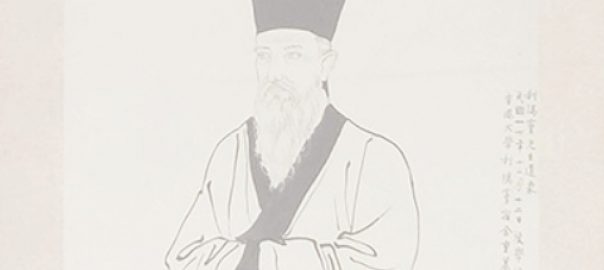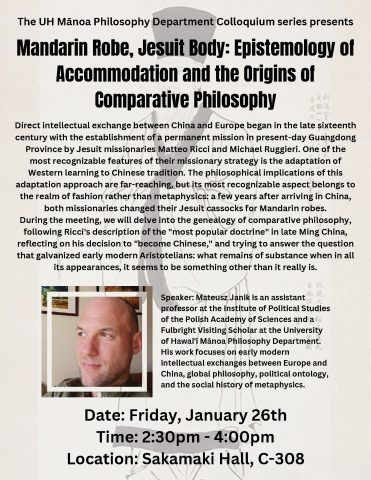Friday, January 26
2:30pm – 4:00pm
Sakamaki Hall, C-308
Direct intellectual exchange between China and Europe began in the late sixteenth century with the establishment of permanent mission in present-day Guangdong Province by Jesuit missionaries Matteo Ricci and Michael Ruggieri. One of the most recognizable features of their missionary strategy is the adaptation of Western learning to Chinese tradition.
The philosophical implications of this adaptation approach are far-reaching, but its most recognizable aspect belongs to the realm of fashion rather than metaphysics: a few years after arriving in China, both missionaries changed their Jesuit cassocks for Mandarin robes. During the meeting, we will delve into the genealogy of comparative philosophy, following Ricci’s description of the “most popular doctrine” in late Ming China, reflecting on his decision to “become Chinese,” and trying to answer the question that galvanized early modern Aristotelians: what remains of substance when in all its appearances, it seems to be something other than it really is.
Speaker: Mateusz Janik is an assistant professor at the Institute of Political Studies of the Polish Academy of Sciences and a Fulbright Visiting Scholar at the University of Hawaiʻi Mānoa Philosophy Department. His work focuses on early modern intellectual exchanges between Europe and China, global philosophy, political ontology, and the social history of metaphysics.

